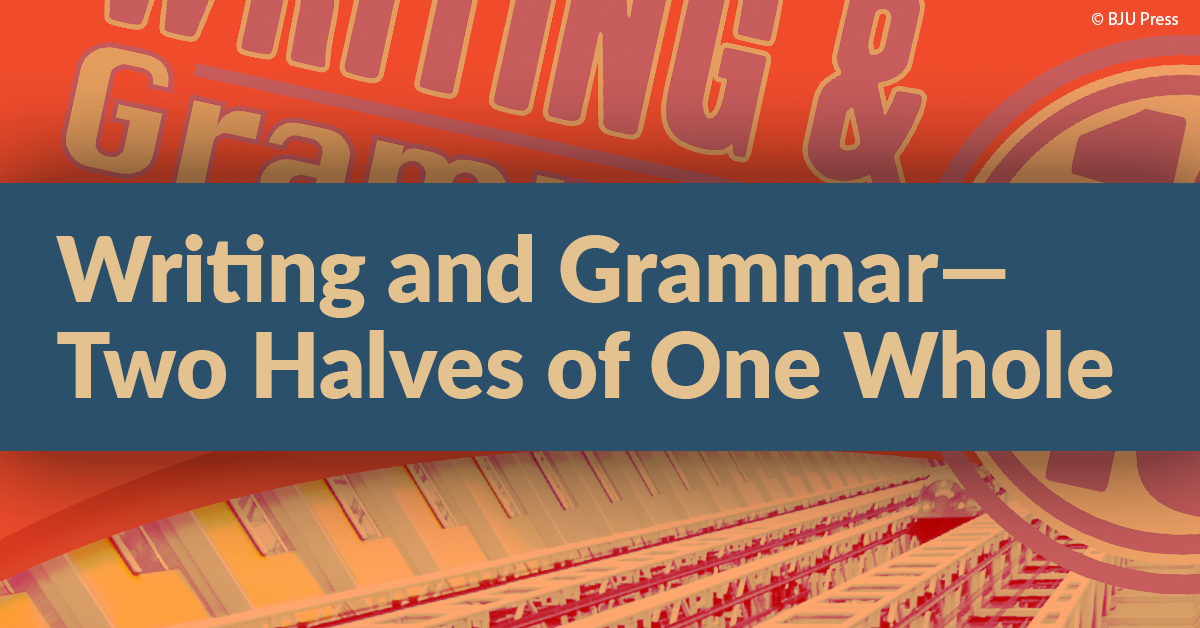For a busy parent, with everything that has to be completed in one homeschool day, teaching writing and grammar is a lot of work. It might seem to make more sense for you to handle these two related subjects as separate classes, or to spend one semester on grammar and the next on writing. So why does BJU Press put them together in the curriculum? Because writing and grammar are two halves of the same whole. Studying grammar helps your child become a better writer, while studying writing helps your child understand grammar. Here are a few reasons why.

- Writing Skills and Grammar Skills
Writing assignments give your child a place to apply the grammar skills he’s just learned. It’s easy for a student to recognize and fix a problem he’s just learned about when looking at a list of sentences that follow a certain formula. The real test of understanding is expecting him to recognize and correct the problem in his own writing. But the reverse is also true—grammar skills improve writing. Writers need a certain level of grammatical understanding in order to be able to communicate effectively. For example, punctuation can change the meaning of a sentence entirely, as in the old joke about the trigger-happy panda that “eats, shoots and leaves.”
- Analytical and Conceptual
People tend to be either analytical or conceptual. Grammar is an analytical skill, and children who favor logical processes tend to do well with grammar. On the other hand, writing is highly conceptual. There are fewer hard-and-fast rules for writing, and children who tend to be conceptual thinkers are likely to succeed in writing. Studying writing and grammar together gives both kinds of thinkers opportunities to use their strengths and improve their weaknesses.
- Objective and Subjective
Since writing is so conceptual, it can also be frustratingly subjective to assess, but this subjectivity leaves room for leniency in grading. When I was teaching writing, I would often ask myself whether lack of sentence variety or overuse of weak verbs really deserved a lower grade even though everything else was well done. But you know your own child’s strengths and weaknesses. If your child enjoys writing but doesn’t excel at spelling or grammar (the objective part), you can choose to value the writing section (the subjective part) of the rubric over the grammar section. If your child does well grammatically but doesn’t write as well, then you can choose to emphasize the grammar section of the rubric. This gives you the flexibility to evaluate your child based on his strengths rather than his weaknesses.
At BJU Press, we teach writing and grammar together all the way from grade 2 through grade 12. Check out our whole line of English-Writing and Grammar textbooks!
Leave a Reply